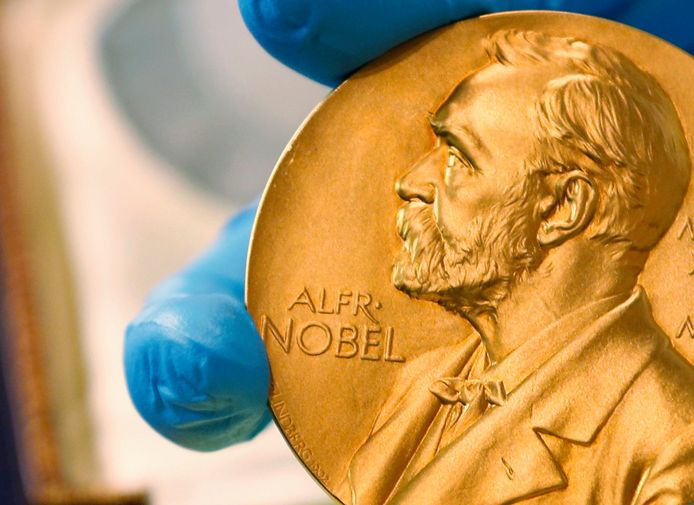The Nobel Prize in economics was awarded on Monday to the Americans Paul Milgrom and Robert Wilson, two experts in “perfect” auctions whose innovative work was notably used in the allocation of telecom frequencies.
The prize is awarded to them for having “improved auction theory and invented new auction formats” to “benefit sellers, buyers and taxpayers around the world,” said the jury of the Swedish Academy of Sciences.
The duo, who were one of the favorites for the award this year, are best known for being behind the concept behind the sale of telecommunications frequency band licenses in the United States, prompting the jury to hail the fact that 'they had thus worked both in theory and in practice. The work of economists, both professors at Stanford, has also been used in the mechanisms for allocating landing slots at airports.
“Auctions are extremely important ... these new formats serve society around the world,” said Peter Fredriksson, jury member, at the press conference following the announcement.
Robert Wilson, 83, has shown, among other things, that rational participants in an auction tend to bid lower than the optimal situation for fear of overpaying.
Asked during the press conference shortly after the announcement of the award, he was delighted with the very good news and confided ... that he had never participated in an auction.
“Myself, I have never participated in an auction (...) My wife points out to me that we have ski boots bought on eBay, I suppose it was an auction”, a he declared.
Paul Milgrom, 72, has formulated a more general theory of auctions, which shows, among other things, that an auction generates higher prices when buyers get information about the bids planned by other bidders during the auction.
Inequalities, economic psychology, health or the labor market, ... For the latest Nobel Prize winner, officially “the Bank of Sweden's prize in economics in memory of Alfred Nobel”, the game was on this year. But Milgrom and Wilson were named as favorites.
In 2019, the prize dedicated a trio of researchers specializing in the fight against poverty, the Americans Abhijit Banerjee and Michael Kremer and the Franco-American Esther Duflo, second distinguished woman in the discipline and youngest laureate in the history of this price.
A “false Nobel”
The economy has so far been the Nobel where the profile of the future winner was the easiest to guess: a man over 55 years old, of American nationality, like this year.
Over the past 20 years, three quarters of them fit this description. The average age of the winners is also over 65, the highest of the six awards.
Even if it is the most prestigious award for a researcher in economics, the prize has not acquired the same status as the disciplines chosen by Alfred Nobel in his founding testament (medicine, physics, chemistry, peace and literature), his detractors mocking him as a “false Nobel” over-representing orthodox and liberal economists.
It was instituted in 1968 by the Central Bank of Sweden, and first awarded in 1969.
The prize comes to close a Nobel season marked on Friday by the peace prize of the World Food Program, the UN body for the fight against hunger.
A vintage more feminine than usual
Thursday, the American poet Louise Glück had won literature. In addition to the American Andrea Ghez, co-winner in physics on Tuesday, two women have entered the history of the Nobel Prize winners for their discovery of “genetic scissors”: the French Emmanuelle Charpentier and the American Jennifer Doudna became the first 100% duo female to win a scientific Nobel.
With four female winners, the 2020 vintage is more feminine than usual, even if it does not equal the record of five in 2009.
The winners, who share nearly a million euros for each discipline, will receive their prize this year in their country of residence, due to coronavirus


